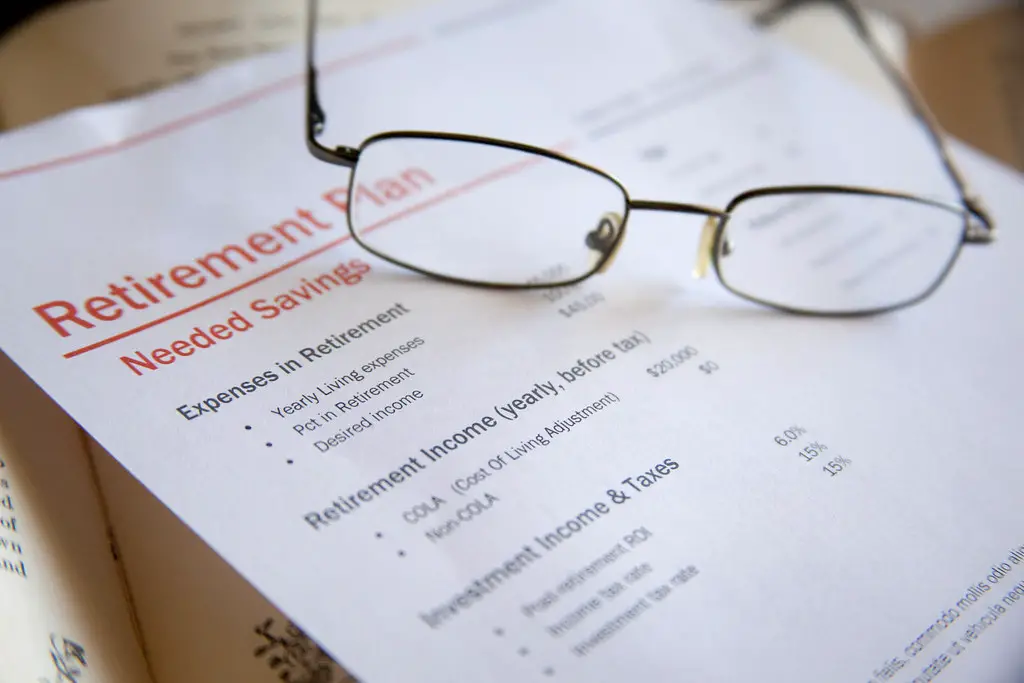Retiring early sounds like a dream, but many who reach that milestone discover they missed some critical steps along the way. Whether it’s about finances, relationships, or personal growth, early retirees often reflect on what they wish they’d done differently. These regrets can serve as valuable lessons for anyone pursuing financial independence. Here are 15 of the most common things people regret not doing before retiring early.
1. Building a More Diverse Income Stream

Relying on a single source of income — like savings or one investment strategy — can be risky in early retirement. Many retirees later realize they should have built multiple income streams to provide more flexibility and peace of mind, notes TIAA. Real estate, dividend stocks, side businesses, or part-time remote work can all contribute to a more secure retirement. Without them, financial stress can creep in faster than expected.
A sudden market downturn or unexpected expense can disrupt a carefully laid-out plan. Those who retire early without a financial cushion often feel boxed in by limited options. Diversification not only strengthens your portfolio but also provides mental comfort. Many wish they had spent more time exploring passive income opportunities before stepping away from work.
2. Taking More Advantage of Employer Benefits

Some people rush to leave the workforce without fully leveraging all the benefits their employer offers. Things like 401(k) matching, stock options, pensions, and even free training can significantly improve your retirement outlook, says the U.S. Department of Labor. Leaving early can mean walking away from thousands of dollars in untapped resources. Many retirees later regret not maxing these out before resigning.
Health insurance is another area often overlooked. Staying just a few more years might qualify you for retiree healthcare or help bridge the gap to Medicare. Missing out on these options can lead to high out-of-pocket costs. A little patience could have provided long-term savings.
3. Traveling While Younger

One of the biggest regrets retirees express is not traveling more before retiring. While early retirement offers more free time, it doesn’t guarantee the same energy or mobility. Long flights, backpacking, and spontaneous adventures can be harder as you age. Many wish they had used vacation time while working to see more of the world.
Waiting too long to travel can also mean missing out on shared experiences with friends or family. Life circumstances change, and it’s not always easy to coordinate trips once others have their own commitments. Travel also tends to be more expensive and complicated later in life, notes Go Abroad. Early retirees often say they should have prioritized memorable adventures sooner.
4. Investing More Aggressively Early On

Many people who retire early look back and wish they had been more aggressive with their investments in their 20s and 30s. Playing it safe may feel secure, but it can slow the growth needed to build lasting wealth. Smart Asset says that those who adopted a more balanced or conservative strategy sometimes found themselves falling short. The compounding power of aggressive growth can be hard to replace later.
Market dips may seem scary, but time is on your side when you’re younger. Risk tolerance typically decreases with age, making early years the best time to maximize growth. Even small increases in risk exposure can yield big differences over decades. Many wish they had learned investment strategies sooner and acted with more confidence.
5. Learning New Skills

Before retiring early, it’s easy to underestimate how valuable skill-building can be — both for personal satisfaction and future income. Many early retirees regret not taking advantage of online courses, certifications, or training while they had the structure of a job. These skills could have opened up part-time work, passion projects, or even consulting opportunities in retirement. Instead, some find themselves bored or struggling to reinvent themselves.
Tech skills, creative hobbies, a new sport, or even public speaking can add richness to post-retirement life. Those who retire early sometimes feel lost without a sense of progress or achievement. Investing in personal development offers both practical and psychological rewards. Learning doesn’t have to stop when the paychecks do.
6. Creating a Stronger Social Network

Retiring early can be socially isolating, especially when peers are still working. Many retirees find themselves missing the daily interactions and community that came with their jobs. They often wish they had built deeper connections outside of work before stepping away. Friendships don’t always carry over once your routine changes.
Volunteering, local clubs, and hobby groups can help fill that gap — but they require time and effort to establish. Starting those relationships before retirement makes for a smoother transition. Some early retirees feel a deep loneliness they never anticipated. A strong social circle is just as important as financial planning.
7. Creating a Retirement Routine

While the idea of total freedom is appealing, many early retirees struggle without structure. Without a daily routine, time can begin to feel empty or unproductive. People often regret not thinking through how they’d spend their days beyond “not working.” A lack of purpose can quickly lead to boredom or even depression.
Planning a loose schedule with meaningful activities can help ease the shift. Volunteering, learning, exercise, and creative projects all offer fulfillment. Many retirees find themselves craving the discipline they once escaped. A little planning can make retirement more rewarding from the start.
8. Accounting for Healthcare Costs

Healthcare can become a major financial burden, especially before Medicare eligibility. Many early retirees regret underestimating how much coverage would cost once they left employer-sponsored plans. Premiums, deductibles, and unexpected procedures can eat away at savings fast. A lack of planning in this area can cause anxiety and force people back to work.
Options like high-deductible plans, COBRA, or health-sharing ministries may help, but each comes with trade-offs. Some wish they had stayed employed longer just to maintain better health benefits. Others regret not budgeting more aggressively for long-term care. Ignoring healthcare planning is one of the most common early retirement missteps.
9. Paying Off All Debts First

Some people rush to retire early without fully eliminating their debts — including mortgages, car loans, or student loans. These monthly obligations can become stressful without a steady paycheck. Many retirees say they regret not being completely debt-free before calling it quits. Financial independence feels far less “free” with ongoing payments.
Interest charges and reduced income can eat into savings quicker than expected. Even low-interest debt creates psychological strain when you’re no longer working. Paying off everything in advance allows for a cleaner break and fewer worries. It’s one less thing to manage in your new chapter.
10. Testing Retirement With a Trial Run

Diving into early retirement without a test run can lead to some unpleasant surprises. Some people wish they had tried a sabbatical or extended leave first to simulate the experience. This would have given them a better idea of how they’d handle the extra time, reduced income, and lifestyle changes. Instead, they went all-in and later realized it wasn’t what they expected.
A trial run can also reveal emotional readiness, not just financial viability. It allows for adjustments in routines, spending habits, and goals. Without this buffer, the transition can feel jarring. Many early retirees recommend “practicing” retirement before making it permanent.
11. Spending More Time With Family

Working years can pass in a blur, and many retirees wish they had spent more time with loved ones before stepping away. Relationships evolve, and it’s not always easy to make up for missed milestones. Some realize too late that they prioritized career goals over family moments. Retirement can’t always fix that.
Time with parents, kids, or a spouse may be more meaningful before retirement than after. People move, grow older, or develop new routines of their own. Those who retire early often find they’re suddenly free when others are still too busy. A better balance earlier on could have made those years more fulfilling.
12. Working With a Financial Advisor

Going it alone sounds empowering, but many early retirees eventually regret not getting professional guidance. A skilled advisor can identify blind spots, optimize tax strategies, and reduce emotional decision-making. Without that input, people may overestimate their readiness or miss out on valuable opportunities. DIY planning doesn’t always hold up in real-world retirement scenarios.
Financial advisors also help set realistic goals and stress-test your retirement plan. They can provide peace of mind and help you pivot when life throws curveballs. Some retirees discover too late that a second opinion might have saved them money and stress. Professional advice is often worth the investment.
13. Creating a Back-to-Work Plan

Even if you don’t plan to work again, it’s smart to have a plan just in case. Some early retirees find themselves needing extra income or craving a return to productivity. Without a re-entry strategy, getting back into the workforce can be difficult. Skills can atrophy, networks fade, and opportunities become harder to find.
A flexible, low-commitment option like consulting or freelance work can help bridge the gap. Others explore passion projects that generate modest income. The key is keeping doors open, not shutting them completely. Many regret burning bridges instead of building stepping stones.
14. Setting More Emotional Goals

Financial goals tend to dominate retirement planning, but emotional goals matter just as much. People often retire early without asking, “What do I want my life to feel like?” The absence of work doesn’t automatically create happiness or meaning. Those who don’t plan for emotional fulfillment may end up restless or unsatisfied.
Setting goals around personal growth, relationships, creativity, and contribution can provide direction. It’s important to think beyond numbers and into experiences and values. The happiest retirees often have a strong emotional “why” guiding their choices. Many wish they had done that inner work much sooner.
15. Celebrating the Milestone

Early retirees often forget to pause and celebrate their incredible achievement. Many are so focused on logistics and transitions that they skip the emotional recognition. Retirement is a major life event, and skipping the celebration can make it feel anticlimactic. Some say they regret not throwing a party, taking a trip, or simply marking the occasion meaningfully.
Celebrating creates a moment of closure and sets a positive tone for the next phase. It honors the effort and discipline that made early retirement possible. Without it, the transition can feel vague or incomplete. A meaningful sendoff is something many people look back on and wish they hadn’t skipped.
